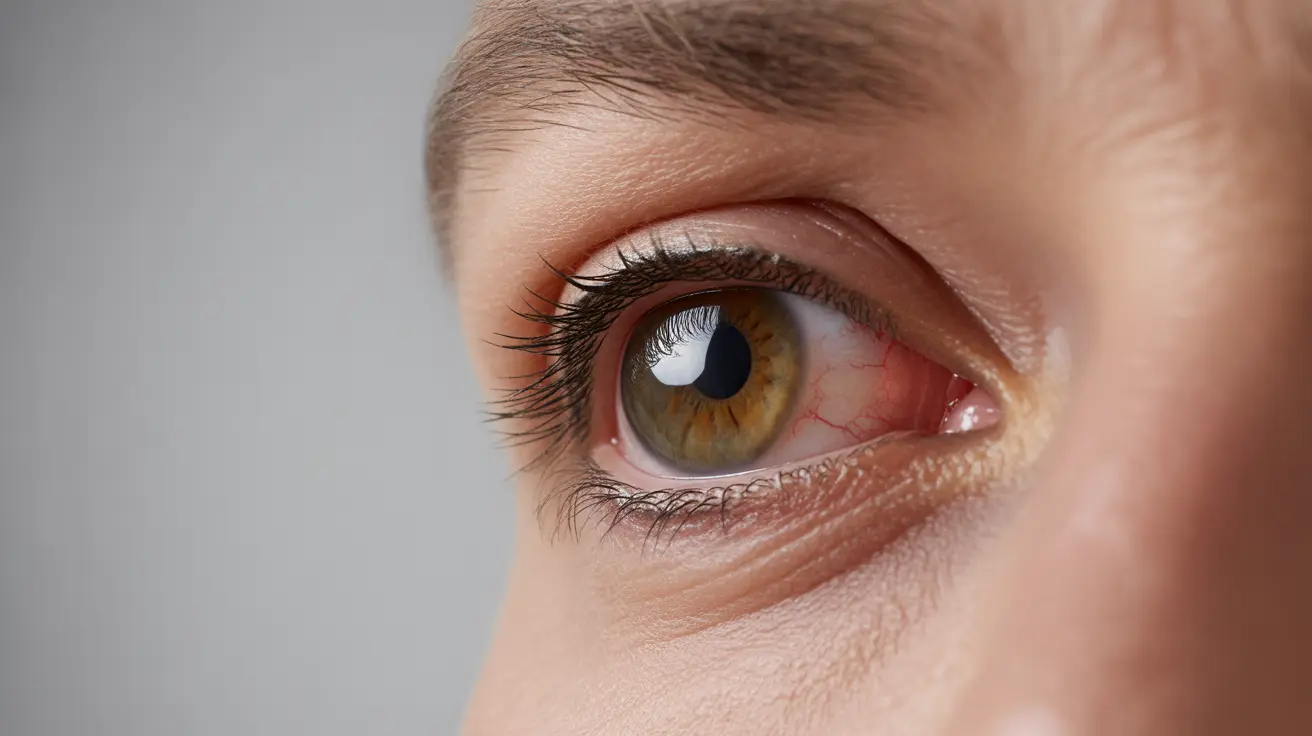Heavy eyelids can be a frustrating and concerning symptom that affects many people. This sensation of weighted or dragging eyelids can impact your daily activities, vision, and overall quality of life. Understanding the underlying causes and available treatments is crucial for finding effective relief.
In this comprehensive guide, we'll explore the various reasons why your eyelids might feel heavy, when to be concerned, and what you can do about it.
Common Causes of Heavy Eyelids
Several factors can contribute to the sensation of heavy eyelids, ranging from simple fatigue to more serious medical conditions:
Fatigue and Sleep Issues
The most common reason for heavy eyelids is insufficient or poor-quality sleep. When your body doesn't get enough rest, your eye muscles can become fatigued, leading to that heavy, drooping sensation.
Allergies and Environmental Factors
Seasonal allergies, eye strain from digital devices, and exposure to irritants can cause inflammation and swelling in the eyelids, making them feel heavier than usual. Common triggers include:
- Pollen
- Dust
- Pet dander
- Extended screen time
- Air pollution
Medical Conditions
Several medical conditions can cause heavy eyelids:
- Ptosis (drooping eyelids)
- Myasthenia gravis
- Neurological conditions
- Thyroid disorders
- Bell's palsy
Identifying Warning Signs
While heavy eyelids are often temporary and harmless, certain symptoms warrant medical attention:
Seek immediate medical care if you experience:
- Sudden onset of drooping eyelids
- Vision changes or double vision
- Severe eye pain
- Difficulty opening your eyes
- Facial muscle weakness
Effective Solutions and Treatment Options
Lifestyle Changes and Home Remedies
Many cases of heavy eyelids can be improved with simple lifestyle modifications:
- Maintaining a regular sleep schedule
- Taking regular breaks from screen time
- Using artificial tears for dry eyes
- Practicing good eye hygiene
- Staying hydrated
- Managing allergies
Medical Treatments
For persistent or severe cases, medical interventions may include:
- Prescription eye drops
- Allergy medications
- Botox injections
- Eyelid surgery (blepharoplasty)
- Treatment of underlying medical conditions
Prevention Strategies
Prevent heavy eyelids by:
- Getting adequate sleep (7-9 hours nightly)
- Using proper lighting when reading or working
- Taking regular breaks during screen time
- Protecting eyes from allergens and irritants
- Maintaining good overall health
Frequently Asked Questions
What are the most common causes of heavy eyelids and how can I identify them?
The most common causes include fatigue, allergies, eye strain, and medical conditions like ptosis. You can identify the cause by noting when symptoms occur, their duration, and any accompanying symptoms like itching or pain.
How can allergies or fatigue contribute to my eyelids feeling heavy?
Allergies cause inflammation and fluid retention in the eyelids, while fatigue weakens the muscles that control eyelid movement. Both conditions can result in a heavy, drooping sensation.
When should I be concerned about heavy eyelids affecting my vision and seek medical help?
Seek medical attention if you experience sudden onset of symptoms, vision changes, severe pain, or if the heaviness is accompanied by facial weakness or other neurological symptoms.
What are effective home remedies and lifestyle changes to relieve heavy eyelids?
Effective remedies include getting adequate sleep, using cold compresses, taking screen breaks, staying hydrated, and managing allergies. Regular eye exercises can also help strengthen eyelid muscles.
What medical treatments or surgeries are available for severe or persistent heavy eyelids?
Medical treatments may include prescription medications, Botox injections, or surgical procedures like blepharoplasty. The appropriate treatment depends on the underlying cause and severity of symptoms.




